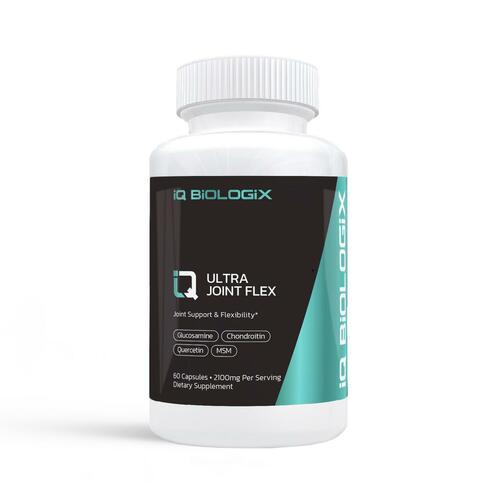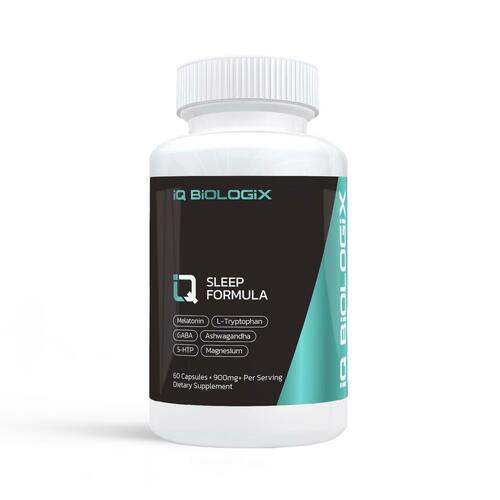Sleep Problems Could Be Key Driver Of Chronic Pain, New Study Finds
While many believe that pain merely disrupts sleep, research at the UQ School of Health and Rehabilitation Sciences is challenging this notion by revealing that poor sleep may play a critical role in the onset and worsening of chronic pain.
“It’s the biggest unresolved health issue of our time,” David Klyne, a scientist at The University of Queensland in Australia (UQ), said in a press release.
Klyne’s work shows that up to 90 percent of people with chronic pain also struggle with sleep problems, underscoring how vital sleep is to managing and potentially preventing ongoing discomfort.
Chronic pain is a debilitating condition for millions around the globe.
However, new insights suggest that the relationship between pain and sleep may be more complex than previously thought.
As George Citroner writes at The Epoch Times, Klyne wants to change how health care professionals treat patients with ongoing pain.
He has found that inadequate sleep can lead to chronic pain rather than being solely a consequence of it.
According to the study, up to 90 percent of people with chronic pain also battle sleep problems, underscoring the crucial role that sleep plays in the experience of pain.
Expert Opinions on Sleep-Pain Connection
Between 67 and 88 percent of people with chronic pain experience sleep disruption and insomnia, and approximately 50 percent of people with insomnia report chronic pain, Dr. William Caldwell, medical director of the Center for Pain Management at Stony Brook Medicine, told The Epoch Times.
Caldwell advocates for a greater emphasis on treating both pain and sleep issues, as substantial evidence links chronic pain with poor sleep quality.
“In my practice, I specifically ask if a patient’s pain leads to altered sleep behaviors,” Caldwell said.
“If sleep is altered, a specific focus is made to improve nocturnal pain symptoms that will hopefully lead to more healthy sleep patterns,” he added.
Klyne’s previous research has indicated a strong correlation between sleep and recovery from pain. For example, people recovering from injuries may heal more rapidly with better sleep.
Lack of sleep may put extra strain on the nervous and immune systems, making pain worse and potentially leading to chronic conditions.
Worldwide, chronic pain causes more disability than cancer and heart disease combined. Sleep has been overlooked as a treatment for pain, according to Klyne, who said he hopes his research will change.
His team is recruiting participants for clinical trials, targeting people 18 and older who have experienced back pain for at least two days within two weeks.
Klyne and his team plan to explore how sleep affects pain by having participants wear devices that track sleep patterns and collecting blood and saliva samples to study hormonal and immune responses. “Previous research has focused on understanding the development of new acute or chronic back pain, but this study will look at the far more common experience of fluctuating symptoms in people who live with the condition,” Klein said in a statement.
The research will examine how the nervous and immune systems respond to both restorative and disrupted sleep. Participants will be awakened at varying times during the night, allowing researchers to gather comprehensive data on how different sleep stages impact recovery and pain levels.
“This will allow us to examine the most detailed and important information ever collected for this population outside of a laboratory and minimize disruption to participant’s day-to-day activities,” he added.
This research also ties into Klyne’s broader work exploring how lifestyle factors influence pain, which could prove essential in developing effective treatments.
Implications for Chronic Pain Treatment
If Klyne’s findings are confirmed, they could lead to changes in how chronic pain is treated, emphasizing sleep therapy alongside traditional pain management methods.
Recognizing sleep as a critical aspect of treatment might also help prevent the transition from acute pain to potentially debilitating chronic pain.
Patients who struggle with chronic pain and believe their sleep may be affecting their condition should discuss their concerns with their physician, Caldwell said.
“If chronic pain is altering sleep, it needs to be addressed directly,” he added.
“We know that chronic pain and poor sleep are linked, but there are also clear correlations between altered sleep and general overall health.”
A treatment plan focusing on modalities to address chronic pain and sleep “needs to be developed between the patient and physician,” Caldwell noted.
Tyler Durden Mon, 12/09/2024 – 21:20
Source: https://freedombunker.com/2024/12/09/sleep-problems-could-be-key-driver-of-chronic-pain-new-study-finds/
Anyone can join.
Anyone can contribute.
Anyone can become informed about their world.
"United We Stand" Click Here To Create Your Personal Citizen Journalist Account Today, Be Sure To Invite Your Friends.
Before It’s News® is a community of individuals who report on what’s going on around them, from all around the world. Anyone can join. Anyone can contribute. Anyone can become informed about their world. "United We Stand" Click Here To Create Your Personal Citizen Journalist Account Today, Be Sure To Invite Your Friends.
LION'S MANE PRODUCT
Try Our Lion’s Mane WHOLE MIND Nootropic Blend 60 Capsules
Mushrooms are having a moment. One fabulous fungus in particular, lion’s mane, may help improve memory, depression and anxiety symptoms. They are also an excellent source of nutrients that show promise as a therapy for dementia, and other neurodegenerative diseases. If you’re living with anxiety or depression, you may be curious about all the therapy options out there — including the natural ones.Our Lion’s Mane WHOLE MIND Nootropic Blend has been formulated to utilize the potency of Lion’s mane but also include the benefits of four other Highly Beneficial Mushrooms. Synergistically, they work together to Build your health through improving cognitive function and immunity regardless of your age. Our Nootropic not only improves your Cognitive Function and Activates your Immune System, but it benefits growth of Essential Gut Flora, further enhancing your Vitality.
Our Formula includes: Lion’s Mane Mushrooms which Increase Brain Power through nerve growth, lessen anxiety, reduce depression, and improve concentration. Its an excellent adaptogen, promotes sleep and improves immunity. Shiitake Mushrooms which Fight cancer cells and infectious disease, boost the immune system, promotes brain function, and serves as a source of B vitamins. Maitake Mushrooms which regulate blood sugar levels of diabetics, reduce hypertension and boosts the immune system. Reishi Mushrooms which Fight inflammation, liver disease, fatigue, tumor growth and cancer. They Improve skin disorders and soothes digestive problems, stomach ulcers and leaky gut syndrome. Chaga Mushrooms which have anti-aging effects, boost immune function, improve stamina and athletic performance, even act as a natural aphrodisiac, fighting diabetes and improving liver function. Try Our Lion’s Mane WHOLE MIND Nootropic Blend 60 Capsules Today. Be 100% Satisfied or Receive a Full Money Back Guarantee. Order Yours Today by Following This Link.









